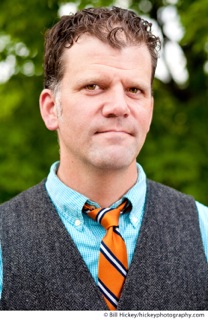 Matthew Batt is the author of the memoir Sugarhouse, just out from Houghton Mifflin Harcourt. He and his wife were having a really crappy year--as was pretty much everybody they knew. Their best friends and family were all getting divorced and/or having babies and/or dying. But instead of giving in and splitting up, Matt and Jenae settled down and bought the best house they could afford. It just so happened it was a crack house. Or at least that's what the new neighbors said. All they knew was that it was a disaster and they were about as prepared to deal with that as they were their semi-midlife crises. But why, they humbly asked, should not knowing what you're doing stop you from doing it? Batt's hilarious book is all about fixing up a house, a life and a marriage.
Matthew Batt is the author of the memoir Sugarhouse, just out from Houghton Mifflin Harcourt. He and his wife were having a really crappy year--as was pretty much everybody they knew. Their best friends and family were all getting divorced and/or having babies and/or dying. But instead of giving in and splitting up, Matt and Jenae settled down and bought the best house they could afford. It just so happened it was a crack house. Or at least that's what the new neighbors said. All they knew was that it was a disaster and they were about as prepared to deal with that as they were their semi-midlife crises. But why, they humbly asked, should not knowing what you're doing stop you from doing it? Batt's hilarious book is all about fixing up a house, a life and a marriage.
Batt was born in Colorado, and grew up just outside of Milwaukee, Wis. He did an MFA (i.e., waited upon hundreds of thousands of tables) and has managed to get a job teaching English and creative writing in St. Paul, Minn., where (spoiler alert!) he and Jenae live with their four-year-old son.
On your nightstand now:
Germinal by Zola, in the original French, of course. Or wait. Do I have to be honest? Well, then it's Born to Run by Christopher McDougall. I've actually been running a lot--I'm doing this nutty 50-mile deal in a few weeks--and so it's comforting to know there are a bunch of other insane people. Isn't that really what all books are for? To make insane people feel less alone?
Favorite book when you were a child:
The Giving Tree by Shel Silverstein, I think. Reading it now to my son, I realize how literal a metaphor for love it really is, but nonetheless how actually close to the truth is was for what my mom did for me growing up.
Your top five authors:
Dave Eggers, David Foster Wallace (the essays, not so much the fiction), Billy Collins, Jon Krakauer, Henry David Thoreau.
Book you've faked reading:
Milton's Paradise Lost. Whenever I get stuck needing to pretend like I've read it, I always come back to the one line of the poem I managed to remember: "Sufficient to have stood though free to fall." In most circles that passes as having read the whole thing. At the very least, you can always deflect people. But what about Satan's portrayal as a kind of hero, they might ask. Or what about Eve's seeming complicity? What about Adam's obsession with fruit? "Sufficient to have stood..." you begin, nodding knowingly.
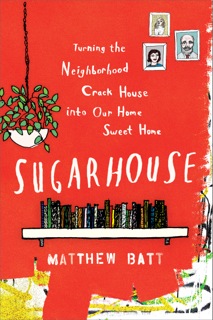 Book you're an evangelist for:
Book you're an evangelist for:
So Long, See You Tomorrow by William Maxwell. It's such a perfect little book. I just love how it takes as its central moment two once-familiar boys passing in a high school hallway and cracks it open to reveal pretty much the entirety of human life--but not in some sprawling, grandiose Proustian way. Just in a little sliver of a book that nonetheless manages to capture all of human experience.
Book you've bought for the cover:
Rambo. I'd include the author, but it was the novelization of the movie. I was probably nine years old. What can I say? I was thinking, What could possibly be better than this classic example of American cinema? Why, the book! (I was wrong, of course, on both counts.) I learned two things here: that books don't have to be good, and that the combination of terrible writing and the act of reading while in a moving car make me physically sick to my stomach.
Book that changed your life:
It was some Hardy Boys book--The Mysterious Case of the Unpeelable Banana or some such--and I read it all in one sitting, under the covers, of course, with a flashlight. The whole shooting match. My favorite books as a kid were really, somewhat sadly, TV. Knight Rider, probably. Possibly also The A-Team. Fantasy Island. But definitely not Three's Company. Man, did that show stress me out. Still does. Anyway, that Hardy Boys book was the first time I discovered that there was a universe inside our heads that can be tapped into with nothing but some smudges on an otherwise clean piece of paper. Pretty miraculous when it comes right down to it. My taste has changed somewhat over the years, but that experience was a real game changer for me.
Favorite line from a book:
"Tell Leif you're the names of things." That's the last line of Robert Hass's poem "Letter" from his first collection, Field Guide. Man, do I love a love poem that doesn't suck. Almost all of them do, of course. "Letter," however, is beatific.
Book you most want to read again for the first time:
The Catcher in the Rye. Now that I know what fencing is.
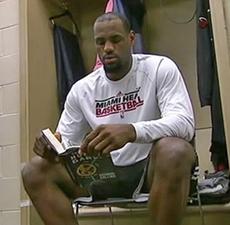 Maybe it was the secret to his success. "For me, it's relaxing honestly. You spend so much preparation for the games, sometimes you just need to get away from it for a little bit. The reading has helped me get away from the game a little bit, and I'm able to zero in once I'm done and get ready for the games.... I wanted to try something new in this postseason honestly. I'm not watching much TV so I'm reading a little bit more.... People have seen me walking around with [books and] they've been given lists of books to read."
Maybe it was the secret to his success. "For me, it's relaxing honestly. You spend so much preparation for the games, sometimes you just need to get away from it for a little bit. The reading has helped me get away from the game a little bit, and I'm able to zero in once I'm done and get ready for the games.... I wanted to try something new in this postseason honestly. I'm not watching much TV so I'm reading a little bit more.... People have seen me walking around with [books and] they've been given lists of books to read."


SHELFAWARENESS.1222.S1.BESTADSWEBINAR.gif)


SHELFAWARENESS.1222.T1.BESTADSWEBINAR.gif)
 According to the survey, 58% of respondents have a library card and 69% consider the library important to them and their family. Also of note:
According to the survey, 58% of respondents have a library card and 69% consider the library important to them and their family. Also of note: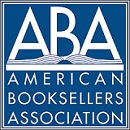 The American Booksellers Association will have
The American Booksellers Association will have 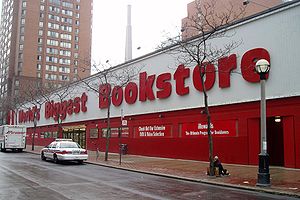 Reports earlier this week that the iconic World's Biggest Bookstore in Toronto would be
Reports earlier this week that the iconic World's Biggest Bookstore in Toronto would be 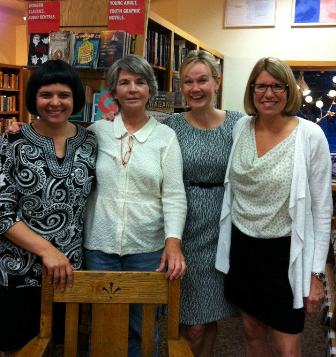
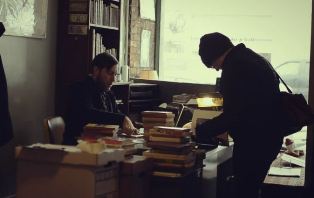 Epilogue--The Future of Print
Epilogue--The Future of Print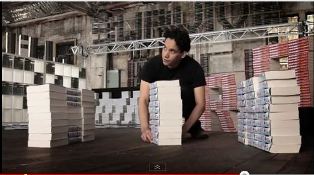
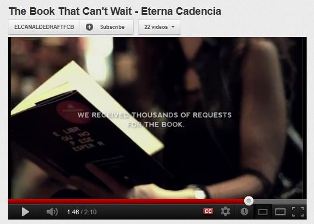
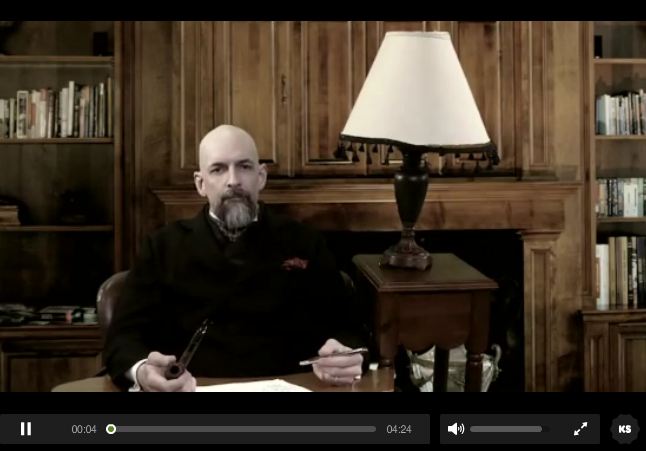
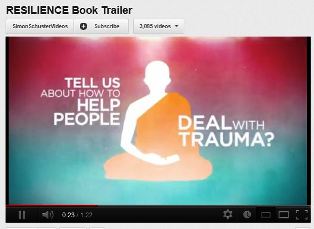 Resilience: Why Things Bounce Back
Resilience: Why Things Bounce Back
 Matthew Batt is the author of the memoir Sugarhouse, just out from Houghton Mifflin Harcourt. He and his wife were having a really crappy year--as was pretty much everybody they knew. Their best friends and family were all getting divorced and/or having babies and/or dying. But instead of giving in and splitting up, Matt and Jenae settled down and bought the best house they could afford. It just so happened it was a crack house. Or at least that's what the new neighbors said. All they knew was that it was a disaster and they were about as prepared to deal with that as they were their semi-midlife crises. But why, they humbly asked, should not knowing what you're doing stop you from doing it? Batt's hilarious book is all about fixing up a house, a life and a marriage.
Matthew Batt is the author of the memoir Sugarhouse, just out from Houghton Mifflin Harcourt. He and his wife were having a really crappy year--as was pretty much everybody they knew. Their best friends and family were all getting divorced and/or having babies and/or dying. But instead of giving in and splitting up, Matt and Jenae settled down and bought the best house they could afford. It just so happened it was a crack house. Or at least that's what the new neighbors said. All they knew was that it was a disaster and they were about as prepared to deal with that as they were their semi-midlife crises. But why, they humbly asked, should not knowing what you're doing stop you from doing it? Batt's hilarious book is all about fixing up a house, a life and a marriage. Book you're an evangelist for:
Book you're an evangelist for: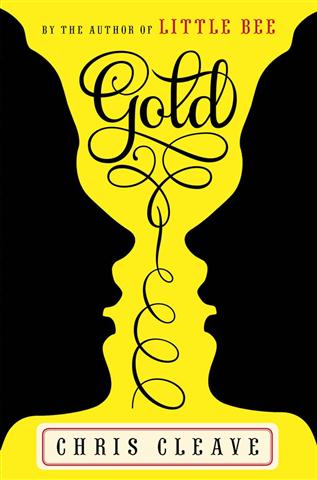 Chris Cleave's Gold spins a tire-ripping velodrama out of two subjects underrepresented in novels: the head-games of Olympic track cycling and the heart-splitting demands faced by female athletes who try to balance motherhood and elite competition in their peak physical years. Despite its unusual subject matter, Gold is not an esoteric novel; readers who don't know an individual pursuit from a keirin will be able to feel the excitement in Cleave's clearly depicted racing scenes and readers who are devotees of high-stakes emotional triangles will find much to untangle.
Chris Cleave's Gold spins a tire-ripping velodrama out of two subjects underrepresented in novels: the head-games of Olympic track cycling and the heart-splitting demands faced by female athletes who try to balance motherhood and elite competition in their peak physical years. Despite its unusual subject matter, Gold is not an esoteric novel; readers who don't know an individual pursuit from a keirin will be able to feel the excitement in Cleave's clearly depicted racing scenes and readers who are devotees of high-stakes emotional triangles will find much to untangle.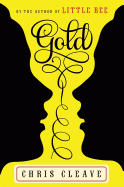
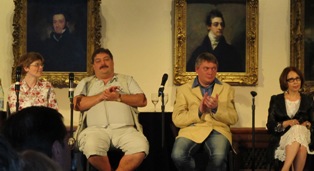 "The only way to reach the American reader is to have the books translated so well they read like they were written in English," said Olga Slavnikova (far right in photo) during a panel discussion called "Contemporary Writers on the Russian Classics," which was held at the New York Public Library June 5, as part of the
"The only way to reach the American reader is to have the books translated so well they read like they were written in English," said Olga Slavnikova (far right in photo) during a panel discussion called "Contemporary Writers on the Russian Classics," which was held at the New York Public Library June 5, as part of the 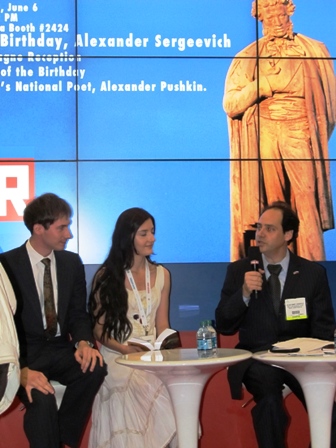 I celebrated Pushkin's birthday there while listening to a pair of young Russian writers read his poems in their native language, followed by Julian Henry Lowenfeld (My Talisman: The Poetry & Life of Alexander Pushkin) reading the translations.
I celebrated Pushkin's birthday there while listening to a pair of young Russian writers read his poems in their native language, followed by Julian Henry Lowenfeld (My Talisman: The Poetry & Life of Alexander Pushkin) reading the translations. 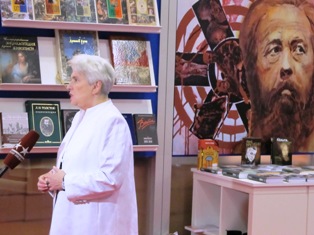 Thus the critical importance of the Solzhenitsyn Archive. A compelling image I retain in memory--as well as photographic form--is of Natalia Solzhenitsyn being interviewed near a Read Russia display focusing upon her late husband.
Thus the critical importance of the Solzhenitsyn Archive. A compelling image I retain in memory--as well as photographic form--is of Natalia Solzhenitsyn being interviewed near a Read Russia display focusing upon her late husband.